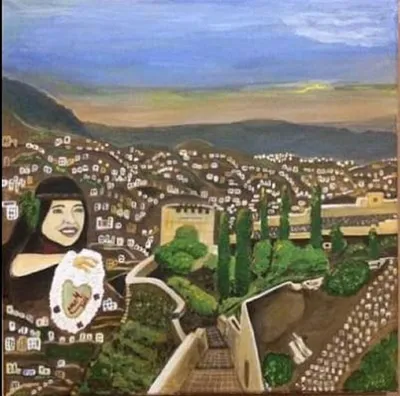

The war has changed almost everything in my life. I was a hopeful person until the sounds of warplanes woke me up at dawn on 24 March 2015, taking my hope away. I left Yemen for another country, hoping to return one day, or to find a homeland somewhere else. I went on this journey hoping that the tragedy of an entire nation would end, a tragedy nobody was listening to. I couldn’t be happy, because people I share blood with had been displaced, destroyed, and isolated from a world that paid no attention to them, knew nothing about them.
My journey was marked by loss and destruction. From the crumbs scattered around me, I tried to take what I cared most about with me. In my heart, I gathered the memories of my beautiful peaceful homeland its good people. The smell of coffee, and the ancient architecture of Sana’a. I kept with me the love of my mother Yemen, planted in the roots of my being by my beloved father.
I moved away, and began to rebuild the ruins of myself in another country, using hard work and education as my tools. Some of the people I met here have begun to feel like home. We share similar stories of loss, homeland, identity, alienation, and a love for humanity that I cannot describe. But deep in my soul is a separation that cannot be fixed. The greatest impacts of war can't be shown in the news.
This painting is inspired by the beautiful city of Taiz, which has been destroyed by war. I made it in July 2015.